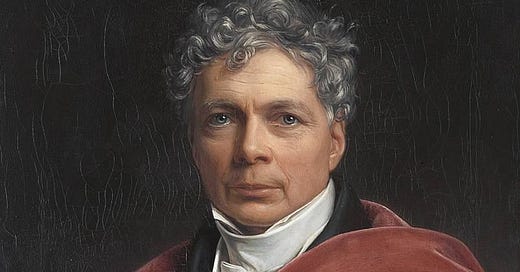With the help of Friedrich Wilhelm Joseph Schelling, Eduard Von Hartmann, and Arthur Schopenhauer, let us try and lay a troublesome ghost to rest.
“It soon became clear that the external world is certainly only there for me, and so far as I myself am here and conscious to myself (that is self-evident), but that also conversely, in the act of self-presentation, I am conscious that along with the revealed I am, I find also the world already – there – existing, that thus in no case does the already conscious Ego produce the world. Nothing however prevented the receding of this now self-conscious Ego to a moment when it was not yet conscious of itself, and assuming a region beyond the present consciousness, and an activity which no longer itself but only through it’s result comes to consciousness” 1
The ‘ego’ consciousness does not produce the world. The ego appears within consciousness along with the world as it’s object. For the ego, certainly, when (to use a thoroughly clichéd ‘controversy’) a branch falls in the forest without a living ear around to hear, yes, it does produce a sound. This question is answered in the affirmative, simply because the ego shares the same ontological status as the elements of the thought experiment; they are activities within consciousness, and consciousness is already the given and inescapable ground of all perception, philosophy, speculation, science. The very fact of there being a question necessarily entails a consciousness for which it is a question. Without consciousness, would there be a sound? No. Of course not.
The ground of consciousness is unconscious. Indeed, the Unconscious. Whether this ground be, as in Schopenhauer, simply unconscious Will, or as in Von Hartmann, unconscious Idea (and thus thinking) and Will combined, it is nevertheless the prius, the original being from which all that is and is within consciousness is derived, or from which all emanates as experience.
At any rate, consciousness, or human consciousness in it’s commonly assumed ‘ego’ form, is as much a barrier as an access to the original being of the world. The confusion which leads to apparent difficulties, even paradoxes such as the above question regarding ‘sounds not heard’ arises by assuming for the ego an absolute reality when it is in fact just a coordinate in the paradigm of consciousness with which experience is interpreted.
Schelling perhaps dresses up, or at least edits his profound insight, the recognition of the Unconscious, into forms palatable for an audience within the Judeo-Christian cultural background into which he was born, and which in his time still exerted powerful and potentially censoring influence, and so his prose can appear baroque. Nevertheless it contains genuine illuminating wisdom- and in a way similar to much of what is derided as New Age woo today (and I admit, I am myself guilty of being excessively critical and dismissive of the latter at times).
This last quotation from Von Schelling is a good representative of this profundity wrapped in rococo on the subject of the Unconscious.
“This eternally Unconscious, which, as were it the eternal sun in the kingdom of spirits, is hidden by it’s own untroubled light, and although never becoming Object, impresses it’s identity on all free actions, is withal the same for all intelligents, the invisible root of which all intelligencies are only the powers, and the eternal mediator between the self-determining subjective in us and the objective or intuited, at once the ground of conformity to law in freedom, and of freedom in conformity to law”
Both quotations of Von Schelling are taken from Eduard Von Hartmann's “Philosophy of the Unconscious”




